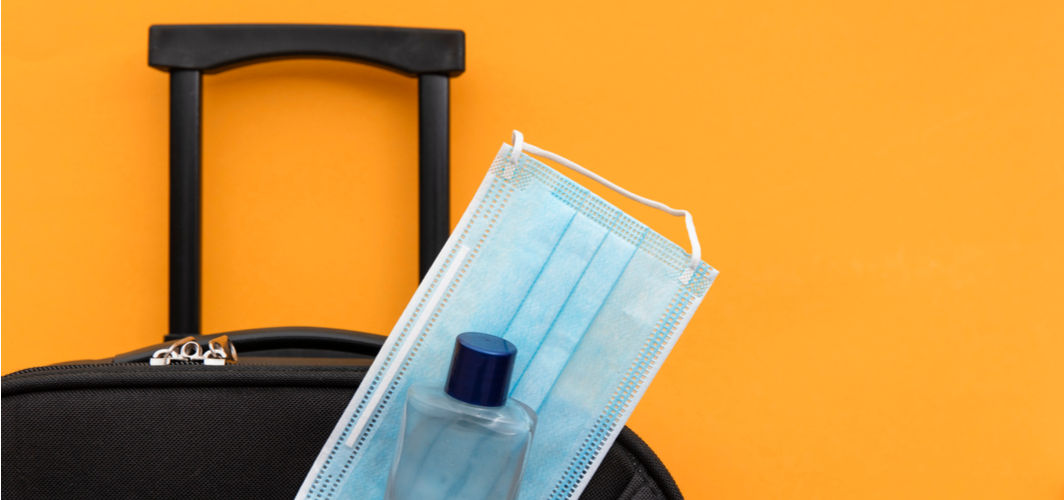Coronavirus Updates
How Do We Keep Our Kids Safe During COVID-19?
5 min read
By Apollo 24/7, Published on - 04 June 2020, Updated on - 18 October 2022
Share this article
0
2 likes

COVID-19 is a respiratory disease caused by a novel Coronavirus which has affected many people globally. While some children have been sick with COVID-19, most illnesses have been among adults. There is much more to learn about how this disease affects children.
Children with COVID-19 may have mild symptoms such as fever, runny nose, and cough. Vomiting and diarrhoea have also been seen in some children. Younger infants might just have a fever but can become irritable and may not accept feeds. Few reports suggested that infants aged below one year and those with previous medical conditions might be at higher risk of getting a severe illness from COVID-19. The medical conditions associated with higher risk of COVID-19 are chronic lung disease, asthma, a serious heart condition, weak immune system, and cancer.
What does the research on children affected by COVID-19 reveal?
Various studies were conducted by researchers in China and Italy to understand the effect of COVID-19 in children. The study in Italy included children below 18 years who were infected with Coronavirus. It was found that children accounted for only 1% of the total positive patients during March 2020. Out of the 1% infected children, only 11% were hospitalized but there were no deaths reported.
The study in China included 2,143 Coronavirus infected children and it was found that only 5.6% of them had severe COVID-19 illness. According to published data until March 2020, there were only two deaths in children infected with Coronavirus in China. Although the global death rate in children is not yet known, researchers believe that it may be lower when compared to the global death rate of 4% in adults infected with Coronavirus.
How can we protect our kids from COVID-19?
From the current data, children appear to be at lower risk of COVID-19 than adults. However, we should encourage our kids to follow certain precautions to prevent the contraction and spread of Coronavirus. The Centre for Disease Control and Prevention (CDC) has recommended the following steps that can help kids to stay healthy:
Teach and reinforce everyday preventive measures:
- Avoid close contact with infected people
- Children who are not well must stay at home unless they need to visit the doctor
- Encourage your child to cover the nose and mouth while coughing and sneezing with a tissue. Educate the child to discard the tissue in a covered bin and then wash hands thoroughly
- Educate kids about washing hands for at least 20 seconds with soap and water. They should do it frequently, especially after blowing their nose, coughing or sneezing, going to the bathroom, and before eating
- Encourage your child to use a hand sanitizer if soap and water are not readily available. You must buy a hand sanitizer which has at least 60% alcohol in it. Supervise your child while using hand sanitizer
- Clean and disinfect frequently touched surfaces and objects at home to prevent your children from contracting Coronavirus
- Launder the clothes and washable plush toys regularly with warm water
- Every child of age 2 years and above can wear a cloth face-covering mask when they go out in public. Social distancing of at least 6 feet is advisable.
Help your child stay physically and mentally active:
- Educate kids to maintain distance while playing with other kids. Prefer playing indoor games with family members, whenever possible
- Keep consistency in their bedtimes, learning, and free time. Give them healthy meals and snacks. Engage them in small chores at home to improve their physical activity
- Look for ways to make learning fun such as painting, drawing, and solving puzzles
- Children can practice handwriting and grammar by writing letters to family members. This can also help them in avoiding close contact while having a connection with adults.
Help your child stay socially connected:
- Having to stay at home, not able to meet friends, or play outside like earlier days may affect your child’s mental health. Try to explain the risk of Coronavirus and the importance of preventive measures
- Help them to have supervised phone calls or video chats with their friends and maintain their social connections.
Maintaining children with health conditions:
- If your child has any existing health conditions, maintain the supply of emergency medications at home with doctor’s advice
- Learn if your child’s doctor is providing new ways of consultation such as telemedicine and use it whenever needed. Telemedicine refers to the practice where a doctor may treat your kid with the help of either audio or video consultation using either a phone or a laptop
- Do not delay in receiving emergency care for your child because of COVID-19. Hospitals have infection prevention plans to lessen the risk of exposure
- Speak with your child’s doctor regarding their vaccination schedule. It is very crucial to keep your child’s vaccination up-to-date to prevent other major diseases such as influenza, diphtheria, tetanus, and measles
- Wash your hands each time before breastfeeding your child. Also, wear a cloth face-covering mask while feeding. It is not yet known if Coronavirus can spread by breast milk. However, the limited data available suggest that it is unlikely. Hence, the CDC suggests continuing breastfeeding while taking precautions.
Conclusion
As COVID-19 is caused by a newly discovered Coronavirus, we are still learning about how it affects children. The evidence from data available to date shows that children are less likely to get COVID-19 as compared to adults. In children with previous existing medical conditions, it may cause severe illness. Since the pandemic is likely to continue for a few more weeks, we have to move forward by taking precautions and lessen the risk of exposure.
Coronavirus Updates
Leave Comment
Recommended for you

Coronavirus Updates
Does Coronavirus Spread Through Food and Water?
Transmission of Coronavirus through food, food packages, and water as per research data appears to be less likely.

Coronavirus Updates
Travelling After Lockdown? Carry These Travel Essentials With You
Carry the travel essentials mentioned in this article while following the necessary precautions to prevent Coronavirus infection.

Coronavirus Updates
How to Keep Yourself Physically Active During Lockdown
Regular physical activity can benefit both the body and mind, especially during the lockdown. It is also good for our mental health as it can reduce stress and enhance our overall mood.
Subscribe
Sign up for our free Health Library Daily Newsletter
Get doctor-approved health tips, news, and more.
Visual Stories

Can India Beat the COVID-19 Surge?
Tap to continue exploring
Recommended for you

Coronavirus Updates
Does Coronavirus Spread Through Food and Water?
Transmission of Coronavirus through food, food packages, and water as per research data appears to be less likely.

Coronavirus Updates
Travelling After Lockdown? Carry These Travel Essentials With You
Carry the travel essentials mentioned in this article while following the necessary precautions to prevent Coronavirus infection.

Coronavirus Updates
How to Keep Yourself Physically Active During Lockdown
Regular physical activity can benefit both the body and mind, especially during the lockdown. It is also good for our mental health as it can reduce stress and enhance our overall mood.